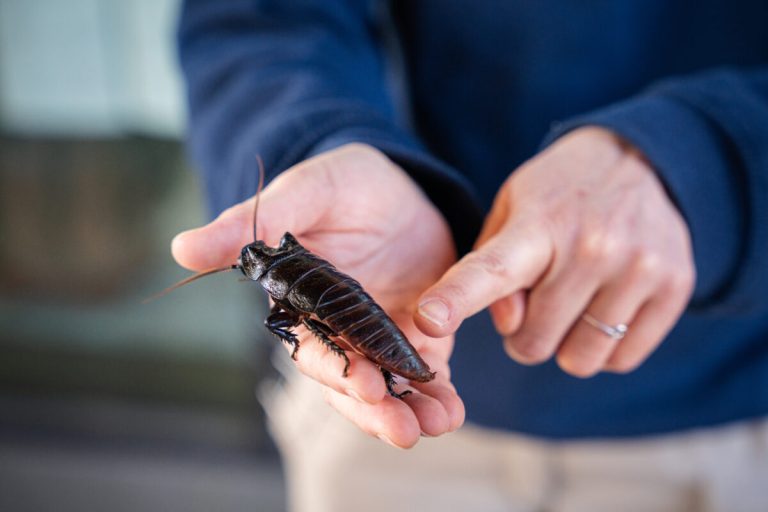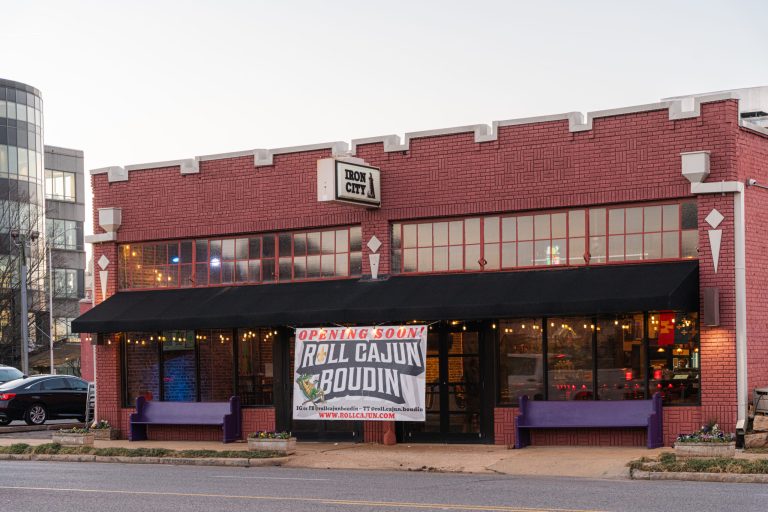Small business Monday – spotlight on Jones Valley Teaching Farm Produce Stand
Reading time: 5 minutes
As you make preparations for your Thanksgiving meal, did you know there is local, seasonal produce, organically grown in downtown Birmingham? Read all about the Jones Valley Produce Stand and teaching farm in this week’s small business focus.

Emorie Roberts tells us all about the Jones Valley Teaching Farm and Produce Stand located at 701 25th St. N- I was an intern for three months with the Jones Valley internship program, then they offered me a job through the AmeriCorps program. So I took a year off of school and I’m doing the farm fellowship. I am studying environmental science with a focus in food and agriculture.

The bulk of the food we produce here goes to school programming. Our main focus is on the schools. There are seven schools across the Woodlawn district that have farms on site. The kids can participate in market club and farm club. We also do a once-a-week harvest for Pepper Place Market.

There are a lot of great things about Jones Valley. All of the schools connect and coexist together. Then we have the community portion with the farm stand. We have subsidized pricing for our farm stand, so most of the food is half of the price of what it would be at Pepper Place. Some of the items are 1.00 off. Like the collards are $3 a bunch at Pepper Place, but $2 a bunch at our farm stand. Herbs are only $1 per bunch at our stand.

Right now we are growing brassicas. That means vegetables like collards, kale, broccoli, cabbage and those types of things. We also have root veggies like carrots, turnips, beets, and radishes. We also have chard and herbs. We just finished our persimmon crop.

The best thing about running the farm stand is that we get to interact with the people who come to get food. We know that food is going somewhere good and not just rotting in some walk-in cooler. This gives people the opportunity to provide access to really fresh food. This area was a food desert before Publix. So for quite awhile, this was the only place in this area where people could go to get fresh food.

Our hardest part of maintaining the stand is always having to change the sign and keeping the bins re-stocked. It’s also sometimes really easy, when all we have to do is open the door. We are open Monday through Thursday 8-5, but we’re usually open on Fridays, too. The stand runs during the months we are producing food. When it gets too cold for that, we’ll probably just have collards, kale and carrots until the early spring production starts.

The Jones Valley Teaching Farm and all of the school farms in our program make up a 1.3 million dollar non-profit. We’re obviously not making that off a produce stand, but it gives us a little more support for ourselves. We get a lot of grants and donations and outside money. The produce stand, along with selling at Pepper Place and us selling to restaurants (like WE Café) is all to show that we can make some income from what we produce.

We do integrative crop management meaning we use organic pest control along with weeding often, watering when the plants need it, therefore keeping the plants as strong and healthy as possible. We spend a lot of money on organic pesticides because they are really expensive.

We work closely with the schools to do standards-based lessons in whatever subject area they are focusing on; anything from math to social studies to science. It just depends on what units they are studying. When I first started my internship, they were studying the agricultural revolution. They have also studied food labels, fables, myths and legends. The school sites include areas for pollinators, fruit trees, sensory mounds, native herbs (useful weeds) and vegetables.

We always have a pond at every location to show biodiversity. The Woodlawn site has an amazing, state-of-the-art greenhouse. We use in to start our seedlings. They also have a very healthy pond. Since we just recently broke ground on that farm, the soil is very healthy, as well.

For the student markets, the kids get experience selling the produce at weekly market times. Each school has its own farm, but they may not have enough crops to harvest to sustain a market, so we supplement from our main farm. The market clubs each have a president, vice-president, treasurer and a marketer. They have an advisor and learn business skills. It’s been really beneficial to the students.
For more information-https://www.facebook.com/jonesvalleyteachingfarm/
Story about the Woodlawn farm –https://bhamnow.com/index.php/2017/05/02/woodlawn-high-school-urban-farm/
Another recent small business post – https://bhamnow.com/index.php/2017/06/12/small-business-monday-focus-bayles-catering-services/



